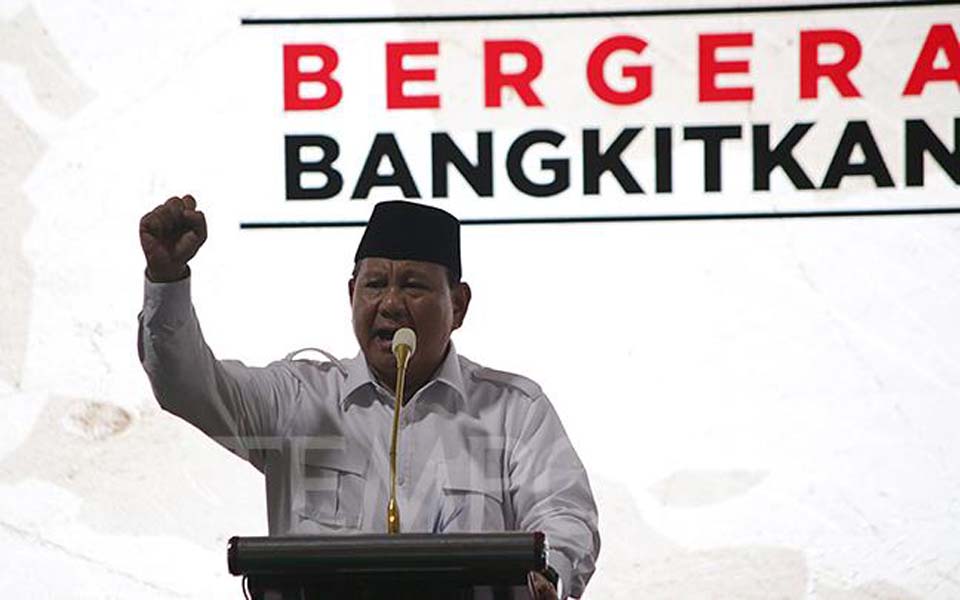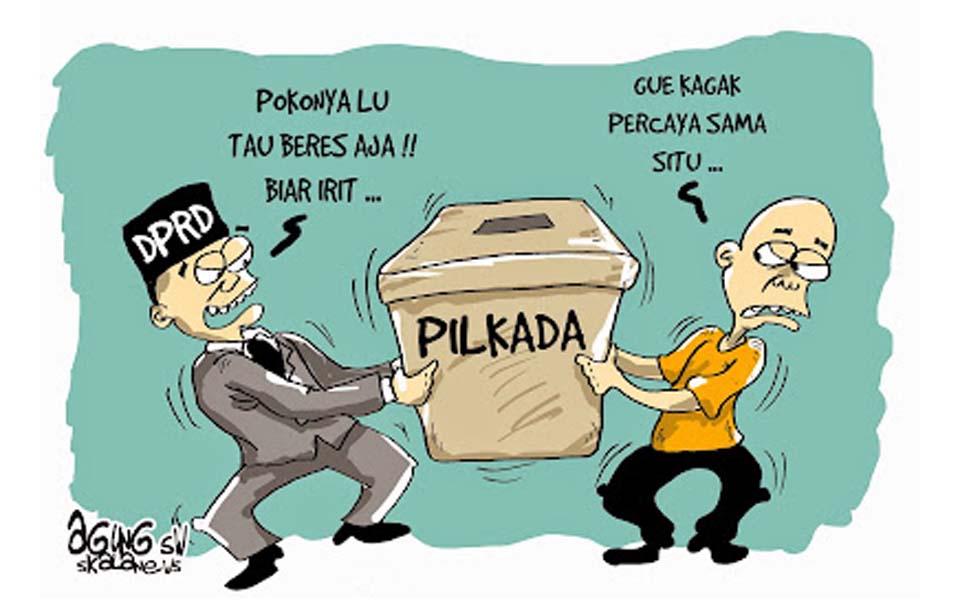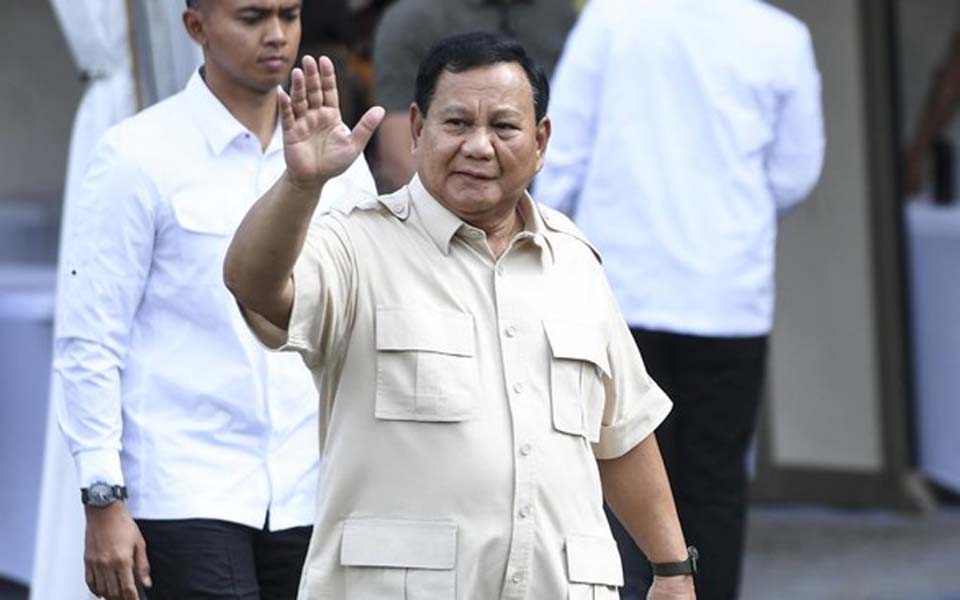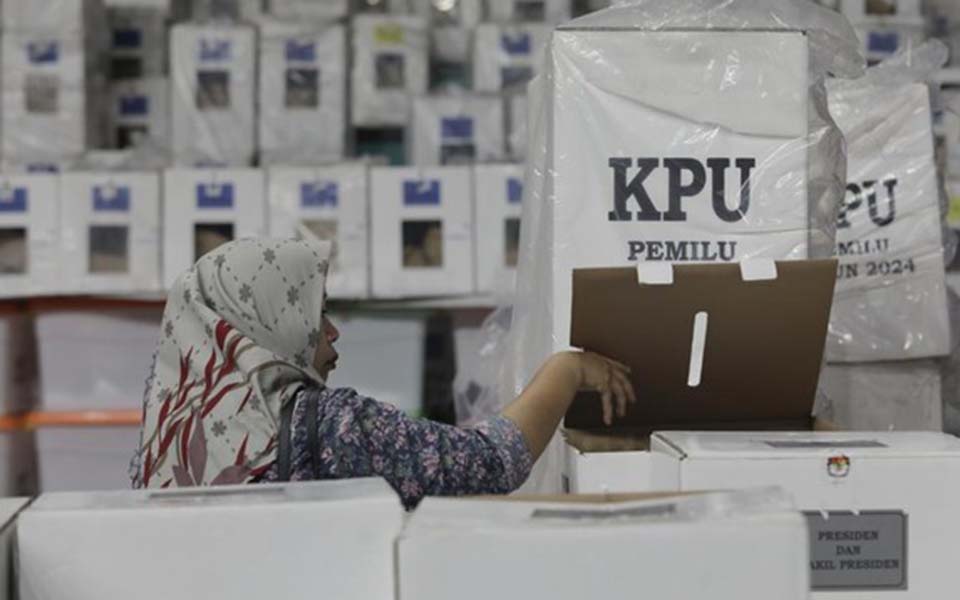Jakarta – Since the presidential election campaign began two months ago, presidential hopefuls incumbent President Joko “Jokowi” Widodo and challenger Prabowo Subianto have yet to offer a substantial vision or program to the public. Both camps have instead largely focused on debating sensational issues.
New Media Watch executive director Agus Sudibyo admits to being surprised by Widodo and Prabowo’s election campaign teams which have not yet discussed their programs or visions in public.
Sudibyo believes that since the campaign began, what has been taking place are actions and reactions over petty and trifling issues which have even tended towards fake news.
Based on his research, Sudibyo is convinced that the sensational content of the campaigns will not have any influence on either camp in the elections.
“The hoaxes thrown up by Prabowo’s team have only solidified Prabowo’s supporters, they haven’t influence other parties. The hoaxes thrown up by the Jokowi camp have only solidified their camp”, said Sudibyo in a discussion at the PARA Syndicate think-tank offices in South Jakarta on Friday November 9.
PARA Syndicate executive director Ari Nurcahyo says he is extremely disappointed with the election campaign. Nurcahyo gave the example of the political language used by the two camps such as “tempeh prices” [referring to a squabble over tempeh prices in Jakarta markets], “Boyolali faces” [referring to a controversial joke made by Prabowo], “sontoloyo” [foolish, stupid] and “genderuwo” [politics that centre on fear] which have created more confusion than substance.
Nurcahyo is of the view that the campaign atmosphere in the 2014 elections – which also pitted Widodo against Prabowo – was far healthier than now.
He well remembers the terms that were introduced by Widodo during the 2014 presidential election campaign such as “sea toll”, “maritime axis”, “building the country from the margins” and “mental revolution”, which developed their own traction and contributed to some degree to the victory of the former Solo mayor.
“It was amazing jargon, but it doesn’t exist now. So far we still don’t know what Nawa Cita [Wododo’s nine point priority program] version 2 talks about”, said Nurcahyo accusingly.
A similar criticism was leveled at the opposition camp. In Nurcahyo’s view the Prabowo campaign team’s promise to take up economic issues as the central discourse is still far from what is actually being talked about, such as Prabowo’s vice presidential running mate Sandiaga Uno who has repeatedly taken up the issue of tempeh prices.
“Economics are not just about prices right. [They need to take up] bigger issues, that’s what hasn’t emerged”, he said.
Youth vote
Agus Sudibyo suspects that if this pattern of campaigning continues through to the end of the campaign, many youth voters will not use their right to vote. Based on research that he has studied, youth voters represent a large population and are rational in character.
Sudibyo estimate that there are still around 40-44 percent of youth voters who are either undecided or soft voters who could still change their mind in 2019.
Youth voters are on average literate, rational, less committed to any particular candidate or party and are less lightly to make their choice at the last minute because they are waiting to see what program is being offered by the presidential candidates.
“As of two months [into the campaign] we have not yet seen or no campaign program is visible, it’s still a vacuum. If this isn’t addressed, I’m convinced that that the number who will golput [abstain from voting] will be even higher”, said Sudibyo.
He quotes from a Kompas research and development survey published in October which put the electability of Widodo and his vice presidential running mate Ma’ruf Amin at around 52.6 percent, Prabowo and Sandiaga Uno at around 32.7 percent and 14.7 percent who declined to reveal their choice. Meanwhile the number of floating voters or those who had yet to make their choice stood at 46.8 percent.
The survey also found that 30.2 percent of Widodo-Ma’ruf voters could still change their vote, while in the Prabowo-Sandiaga camp around 34.2 percent could potentially change their minds.
The survey polled 1,200 respondents in 34 provinces with a confidence level of 95 percent and a 2.8 percent margin of error.
[Translated by James Balowski. The original title of the article was Jokowi dan Prabowo Dinilai Belum Tawarkan Program dan Gagasan.]















